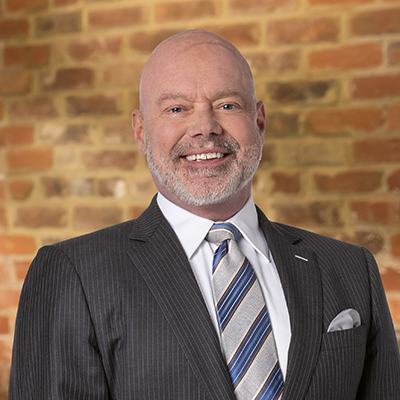As the lead attorney of the Allen Medical Malpractice Team, I enjoy being able to answer questions and serve as a resource for the community. Of course, I especially enjoy helping people who are wondering whether they have legitimate medical malpractice claims.
Why are medical malpractice lawsuits so difficult and expensive to pursue?
- The burden of proof imposed by the law;
- The scientific basis which must support a claim;
- The expenses of pursuing a claim.
Each time I am contacted by a potential client, I’m able to rely on my experience and judgment to counsel them about their potential claims, and each time I must make my own choice about whether a particular case should be pursued.
Obviously, I have an obligation to limit my practice to cases with merit and to cases that I believe are likely to succeed.

When does a medical malpractice case have merit?
I have been practicing medical malpractice law for nearly 25 years, and have litigated cases in most medical specialties. I have also had the privilege of working with some of the leading medical experts in the country and in the world in my efforts to give my clients the best possible representation.
Those decades of experience as a medical malpractice trial lawyer have not only enhanced my knowledge of medicine and how it is typically practiced, but they have also taught me to understand the economic factors involved in pursuing a malpractice claim.
The analysis of any case begins with a simple question: Was the health-care provider negligent?
A bad, unexpected outcome does not mean there was negligence. The fact that another healthcare provider would have acted differently does not mean there was negligence. Even a mistake by the healthcare provider does not mean there was negligence. (Health-care providers are human, too, after all. They are allowed to make mistakes.)
The healthcare provider is negligent if and only if they acted unreasonably
(i.e. did something no reasonable healthcare provider would have done under the circumstances. Whether an act (or failure to act) by a healthcare professional is reasonable can be analyzed only under the specific circumstances of the case.
Why is medical negligence hard to prove—and expensive to identify?
Of course, I am not allowed to testify as to whether the healthcare provider acted reasonably, and neither is the patient. Only another qualified expert health-care provider can testify to such matters. Often, we spend the money necessary to hire such a highly qualified expert only to find out that what the treating healthcare provider did was not unreasonable. Simply determining that there is not a viable case can cost a lot of money.
Assuming we can prove the healthcare provider acted negligently/unreasonably, we must also prove that the patient was injured by that negligence. After all, the patient usually has some problem before the healthcare provider even gets involved. If the healthcare provider was negligent but did not make the underlying situation worse, there can be no medical malpractice case.
The causal link between negligence and injury is not something that I or the patient may testify to. Only a qualified medical expert may testify to this cause and effect. Again, such an expert will charge for their time involved in the case to review the medical records and determine if the negligent act, in fact, caused a real injury.
On these issues of negligence and causation, the patient bears the burden of proof. The healthcare provider bears no burden of proof in a medical malpractice claim.

The expenses for a viable medical malpractice case are high.
Obviously, investigating a case as I have described is a time-consuming and expensive job. If the case is viable, then proceeding with the claim is also a time-consuming and expensive job.
Indeed, the expenses multiply rapidly—witnesses must be deposed (questioned under oath), and both sides produce experts (usually in remote places) to testify to their respective positions on negligence and causation.
Because medical malpractice cases are so expensive, the decision to pursue one must be made very carefully:
- It is difficult—and therefore expensive—to demonstrate to a jury that a healthcare provider acted unreasonably.
- It is often at least as difficult—and therefore at least as expensive—to demonstrate that the negligence, rather than the underlying illness or injury, is what harmed the patient.
No matter what, it is always expensive. Fortunately, our firm has the resources to advance those expenses on our clients’ behalf.
A “close call” on negligence usually means “no case.”
Filing a lawsuit against a healthcare provider is a serious undertaking and one that almost always takes a serious emotional toll on the healthcare provider. For the sake of the law, for the sake of the excellent reputation of the Allen Law Firm, and for the sake of my own conscience, I cannot pursue a case where its merit appears to be a “close call.”
Moreover, because we advance the expenses on behalf of our clients, I limit my practice to those cases which involve permanent, catastrophic injury—including but not limited to brain damage, death, paralysis, loss of limb, organ failure, and disability. Because of our careful screening, I am able to pursue the cases in only a very small percentage of the potential clients who contact us.
When I represent a client, I know that person and their family are relying on me, and I take that responsibility very seriously. If you think you or a loved one may have a legitimate medical malpractice claim,


